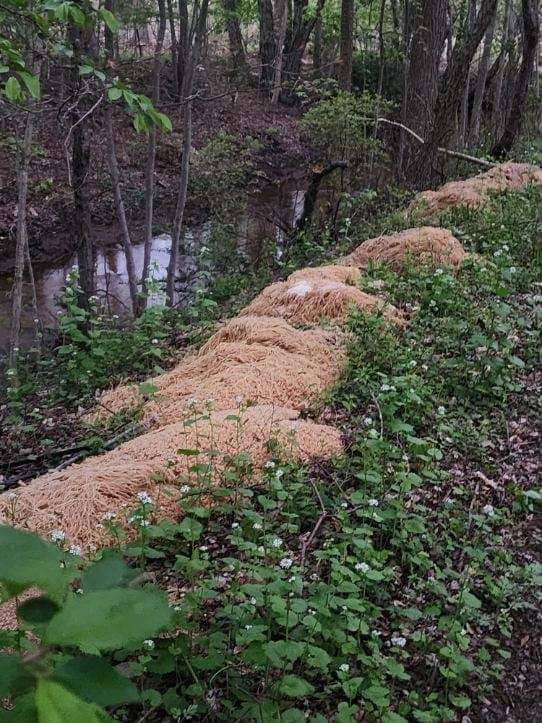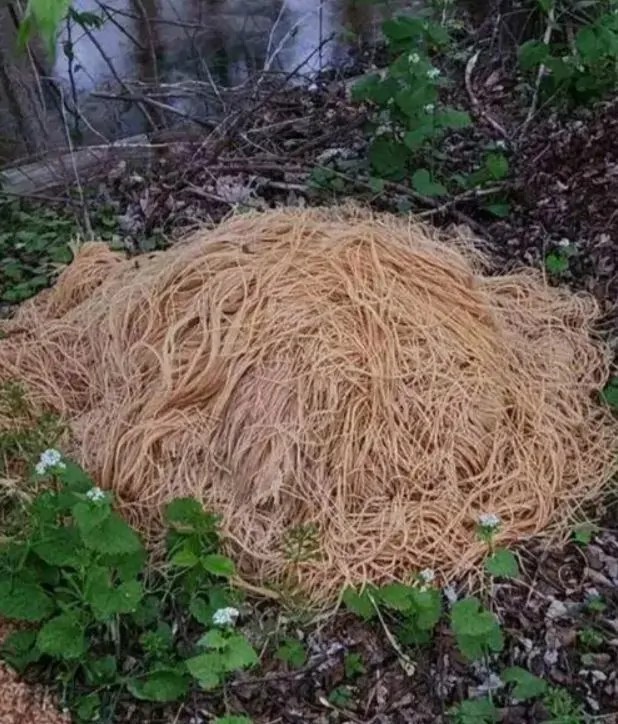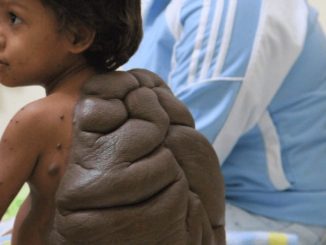The bizarre case of 500 pounds of pasta and noodles being dumped in the woods of New Jersey has finally been solved. A local resident stumbled upon the pasta piles and raised the alarm, which eventually led to the identification of the culprit. Let’s delve into the details of this particular incident and the subsequent efforts to address the environmental concerns it raised.
While taking a stroll in a nearby woodland area, a resident of Old Bridge Township noticed unusual heaps of spaghetti and felt compelled to investigate. Initially reported to the township, the issue was then brought to the attention of local activist Nina Jochnowitz, who documented the incident with viral photos.

According to Keith Rost, a local resident, the mystery has been unraveled. He claims that a veteran who was cleaning his mother’s house before her passing was responsible for the pasta dump. Speculating that the man’s mother had accumulated the food during the pandemic, he suggests that he was looking to dispose of the excess stock.
The Pasta Dump Discovery
Although the appearance of cooked pasta may seem amusing, it poses environmental risks beyond mere wastefulness. The pasta’s pH could potentially impact the water stream, particularly as it feeds into the town’s water supply. Recognizing the potential harm, Jochnowitz emphasized the need for swift action.

After Jochnowitz’s efforts to notify the township went unanswered, she took matters into her own hands. She visited the site, captured photos, and shared them on her public Facebook page, raising awareness about the issue. Recognizing the urgency, public works promptly arrived to remove the dumped pasta, ensuring the cleanup process began promptly.
The mystery of the 500-pound pasta dump in New Jersey’s woods has been resolved, with a local resident identifying the person responsible. This incident serves as a reminder of the importance of environmental stewardship and responsible waste disposal. Thanks to the swift actions of concerned individuals and authorities, the unnecessary noodles were removed, mitigating potential harm to the local water supply.


